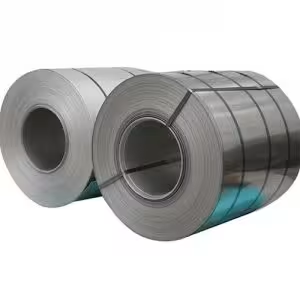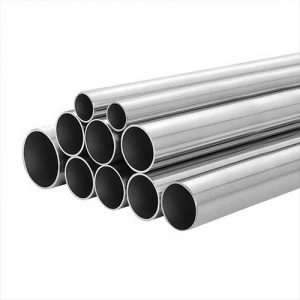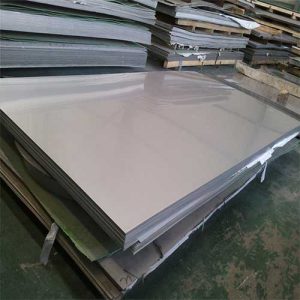Welcome to My Blog!
Before we dive into the content, I’d love for you to join me on my social media platforms where I share more insights, engage with the community, and post updates. Here’s how you can connect with me:
Facebook:https://www.facebook.com/profile.php?id=61565500692293
Now, let’s get started on our journey together. I hope you find the content here insightful, engaging, and valuable.
Table of Contents
Introduction
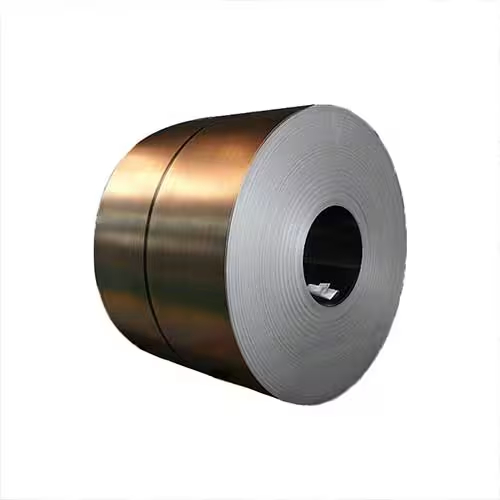
Stainless steel coils are a type of steel that is widely used across various industries due to their remarkable properties, including corrosion resistance, durability, and strength. Stainless steel coil products are typically rolled into flat, wide sheets and coiled into rolls for easy transportation and processing. These coils are extensively used in manufacturing, construction, automotive, and even food processing industries. Understanding the characteristics of stainless steel coil and its uses is essential for anyone in need of steel materials for specific applications.
In this blog, we will dive deep into what stainless steel coil is, its types, uses, and why it’s an important material across various industries. Whether you are an engineer, a manufacturer, or someone interested in understanding more about stainless steel, this guide will provide valuable insights.
What Is Stainless Steel Coil?
Stainless steel coil refers to a rolled stainless steel product that is wound into a coil for easy handling and transportation. It is made through a process called cold rolling, where hot-rolled steel is further processed to achieve desired thickness, surface finish, and strength. Stainless steel coils can come in various grades and finishes, offering a wide range of options for different applications.
The primary advantage of stainless steel coils lies in their resistance to rust and corrosion. This quality makes them suitable for applications where exposure to moisture, chemicals, or extreme temperatures could damage other materials. Stainless steel coils are typically used in industries such as construction, automotive, food processing, and medical equipment.
Types of Stainless Steel Coil
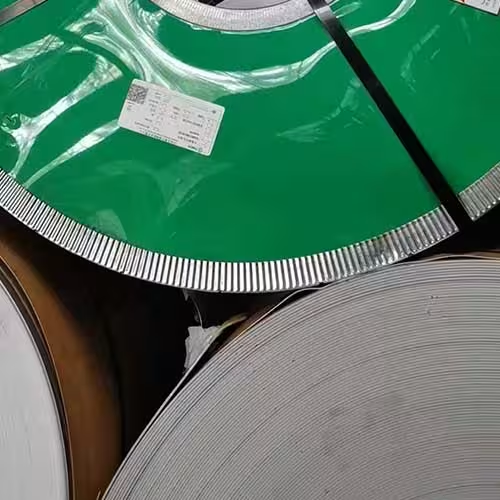
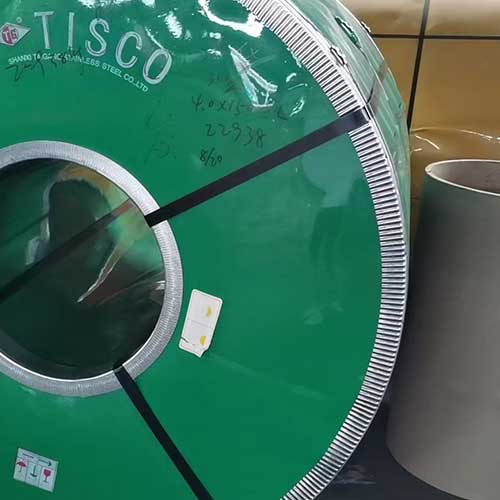
Austenitic Stainless Steel Coil
Austenitic stainless steel coils are the most commonly used type of stainless steel coil. This type is known for its excellent corrosion resistance, high strength, and good formability. Austenitic steel contains high amounts of chromium and nickel, which contribute to its ability to resist rust and its non-magnetic properties. This type of steel is used in applications such as kitchen appliances, food processing equipment, and chemical containers.
Ferritic Stainless Steel Coil
Ferritic stainless steel coils are magnetic and have a lower chromium content compared to austenitic steel. While they are more affordable, they also offer a good level of corrosion resistance, though not as much as austenitic steel. Ferritic stainless steel coils are used in less demanding applications, including automotive exhaust systems and industrial machinery.
Martensitic Stainless Steel Coil
Martensitic stainless steel coils are known for their hardness and strength. These coils are magnetic and can be heat-treated to enhance their hardness properties. Martensitic steel is primarily used in applications that require high strength, such as turbine blades, surgical instruments, and tools.
Duplex Stainless Steel Coil
Duplex stainless steel coils combine the benefits of both austenitic and ferritic steels. This type offers a balanced mix of corrosion resistance and strength, making it ideal for use in chemical plants, power stations, and marine environments where both strength and corrosion resistance are critical.
Uses of Stainless Steel Coil
Construction and Architecture
Stainless steel coils are widely used in the construction industry, especially for applications where aesthetics and durability are required. They are used for roofing, cladding, structural supports, and decorative elements. Stainless steel coils are ideal for buildings exposed to harsh environments due to their ability to withstand extreme temperatures and resist corrosion.
Automotive Industry
The automotive industry also benefits greatly from stainless steel coils. Stainless steel is used in the manufacturing of exhaust systems, body panels, and engine parts. The material’s high strength-to-weight ratio makes it an ideal choice for improving fuel efficiency and performance.
Food Processing
In the food processing industry, stainless steel coils are used for equipment such as tanks, containers, and pipes. Stainless steel’s resistance to corrosion and its ability to be easily cleaned makes it the ideal choice for applications that require hygiene and durability.
Medical Equipment
Stainless steel coils are commonly used in the medical industry to manufacture surgical tools, implants, and medical equipment. Stainless steel’s ability to resist corrosion from bodily fluids and its high strength make it an excellent material for medical devices that require both safety and precision.
Chemical Industry
Stainless steel coils are essential in the chemical industry, where they are used for manufacturing pipes, heat exchangers, and reactors. Their resistance to chemicals and high temperatures makes them ideal for environments where standard steels would degrade.
Table: Comparison of Different Types of Stainless Steel Coils
| Type of Stainless Steel Coil | Main Elements | Corrosion Resistance | Strength | Applications |
|---|---|---|---|---|
| Austenitic (Grade 304) | Chromium, Nickel | Excellent | High | Kitchen equipment, food processing, chemical containers |
| Ferritic (Grade 430) | Chromium | Good | Medium | Automotive exhaust systems, industrial machinery |
| Martensitic (Grade 410) | Chromium, Carbon | Fair | Very High | Surgical tools, turbine blades |
| Duplex (Grade 2205) | Chromium, Nickel | Excellent | High | Chemical plants, marine environments, power stations |
This table provides a comparison of the key characteristics of various stainless steel coils, helping you choose the most suitable type for your specific application.
Benefits of Stainless Steel Coil
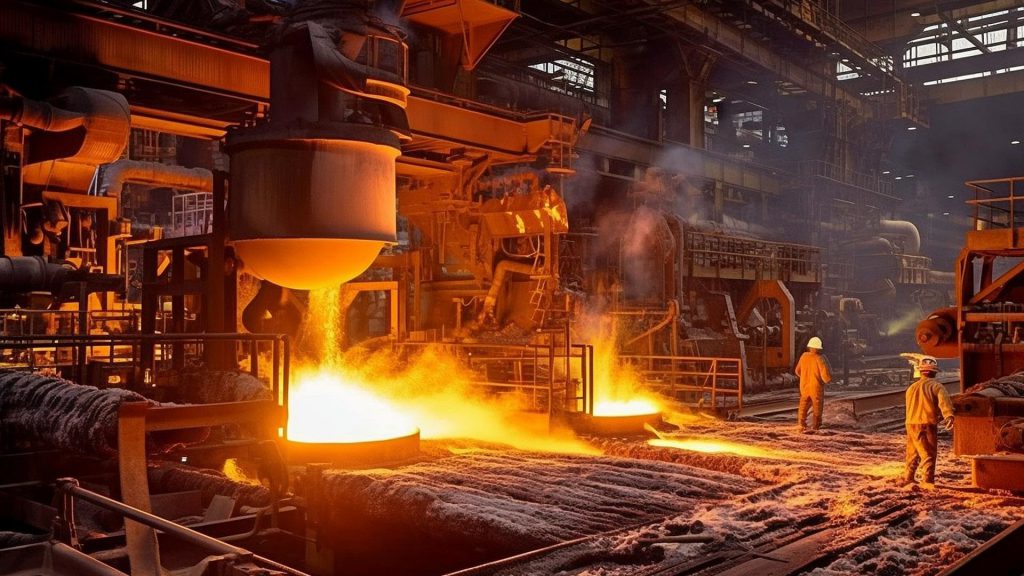
Durability
One of the most significant benefits of stainless steel coil is its durability. Due to its resistance to corrosion and rust, stainless steel coils are able to withstand extreme conditions, including high temperatures, humidity, and exposure to chemicals.
Aesthetic Appeal
Stainless steel coils offer a shiny and attractive appearance, making them ideal for use in architectural and decorative applications. Their modern look is often preferred in both industrial and residential designs.
Easy Maintenance
Stainless steel is easy to clean and maintain, making it perfect for applications where hygiene is critical. The material is resistant to stains, dirt, and corrosion, ensuring that surfaces remain clean and sanitary with minimal effort.
Versatility
With different grades and finishes available, stainless steel coils can be used across a broad spectrum of industries. Whether it’s in heavy-duty industrial applications or lightweight decorative uses, stainless steel can meet a variety of needs.
Conclusion
Stainless steel coils play a vital role across many industries due to their versatility, strength, and resistance to corrosion. From construction and automotive manufacturing to food processing and medical devices, the wide range of applications for stainless steel coils shows just how integral this material is to modern industry. By understanding the different types of stainless steel coils and their unique properties, you can make informed decisions when selecting materials for your projects, ensuring durability, performance, and cost-effectiveness.
FAQ
What is the difference between stainless steel and regular steel?
Stainless steel is an alloy that includes chromium, which provides it with its corrosion-resistant properties. Regular steel, on the other hand, is typically more prone to rust and corrosion.
Can stainless steel coils be used in extreme temperatures?
Yes, depending on the grade, stainless steel coils can withstand extreme temperatures. For example, austenitic stainless steels are highly resistant to high temperatures, making them ideal for high-temperature applications.
Are stainless steel coils recyclable?
Yes, stainless steel is fully recyclable and is often reused in the production of new steel products. This makes it an eco-friendly option.
What are the most common grades of stainless steel coils?
The most common grades of stainless steel coils include 304, 316, 430, and 410. Each grade has different properties that suit various applications.
How do I select the right type of stainless steel coil for my application?
The choice of stainless steel coil depends on factors such as corrosion resistance, strength, and intended use. For applications requiring high resistance to corrosion, austenitic stainless steel (304 or 316) is a good choice. For applications with lower corrosion demands, ferritic or martensitic steels may be suitable.

